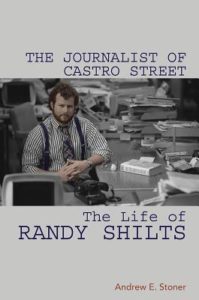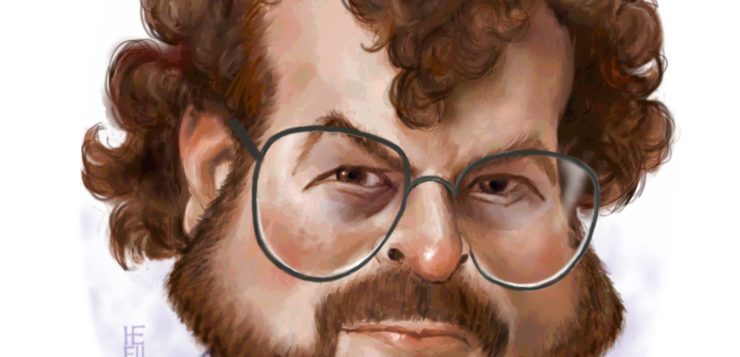 The Journalist of Castro Street: The Life of Randy Shilts
The Journalist of Castro Street: The Life of Randy Shilts
by Andrew E. Stoner
Univ. of Illinois Press. 304 pages, $22.95
THE CAREER of Randy Shilts, the openly gay journalist who wrote three of the most widely read books dealing with gay life in the United States, seems to have been more or less synonymous with the history of San Francisco from his arrival in 1976 to his death in 1994—or such is the impression left by Andrew E. Stoner in his new biography. If you wanted to write a novel with a single character who would carry the reader through an epoch of incredibly rapid change in the gay movement, it would be Shilts. His first book, The Mayor of Castro Street (1982), was subtitled The Life and Times of Harvey Milk—the first openly gay man to serve on the San Francisco Board of Supervisors. His second, And The Band Played On (1987), was about the AIDS pandemic. And the third, Conduct Unbecoming (1993), had moved past AIDS to expose the long history of discrimination against gay people by the armed forces.
As a reporter, he dealt with all the issues faced by gay people at the time: coming out, workplace discrimination, violence, VD, and finally AIDS. By the time he got a job at The San Francisco Chronicle—after starting at The Advocate and then becoming a reporter for the local public TV station—he was so well known as a gay journalist that the owner of the Sutro Baths referred to him as the Chronicle’s “token fag.”
The fact that Shilts was a gay journalist covering gay stories raised a question that is in a way the subject of this book: Was Shilts an activist or a journalist, or some amalgam of the two? His gay critics, of which there were many, accused him of being a self-loathing gay man who wrote what the straight audience wanted to read—especially during the AIDS crisis, when Shilts argued that the baths in San Francisco should be closed. Shilts—who’d worked as a towel boy in the Majestic Baths in downtown Portland, Oregon, when he was attending a community college there, and later spent plenty of time at the tubs in San Francisco as a customer—considered them hotbeds for the spread of HIV.
But that gets us ahead of the story.
Andrew Holleran’s fiction includesDancer from the Dance, Grief, andThe Beauty of Men.







